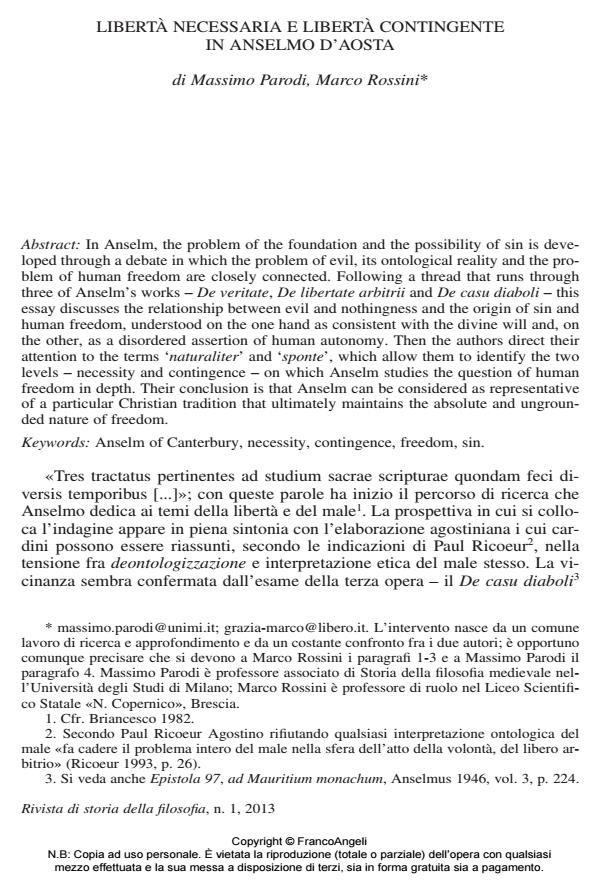Libertà necessaria e libertà contingente in Anselmo d’Aosta
Titolo Rivista RIVISTA DI STORIA DELLA FILOSOFIA
Autori/Curatori Massimo Parodi, Marco Rossini
Anno di pubblicazione 2013 Fascicolo 2013/1
Lingua Italiano Numero pagine 22 P. 43-64 Dimensione file 510 KB
DOI 10.3280/SF2013-001004
Il DOI è il codice a barre della proprietà intellettuale: per saperne di più
clicca qui
Qui sotto puoi vedere in anteprima la prima pagina di questo articolo.
Se questo articolo ti interessa, lo puoi acquistare (e scaricare in formato pdf) seguendo le facili indicazioni per acquistare il download credit. Acquista Download Credits per scaricare questo Articolo in formato PDF

FrancoAngeli è membro della Publishers International Linking Association, Inc (PILA), associazione indipendente e non profit per facilitare (attraverso i servizi tecnologici implementati da CrossRef.org) l’accesso degli studiosi ai contenuti digitali nelle pubblicazioni professionali e scientifiche.
In Anselm, the problem of the foundation and the possibility of sin is developed through a debate in which the problem of evil, its ontological reality and the problem of human freedom are closely connected. Following a thread that runs through three of Anselm’s works - De veritate, De libertate arbitrii and De casu diaboli - this essay discusses the relationship between evil and nothingness and the origin of sin and human freedom, understood on the one hand as consistent with the divine will and, on the other, as a disordered assertion of human autonomy. Then the authors direct their attention to the terms ‘naturaliter’ and ‘sponte’, which allow them to identify the two levels - necessity and contingence - on which Anselm studies the question of human freedom in depth. Their conclusion is that Anselm can be considered as representative of a particular Christian tradition that ultimately maintains the absolute and ungrounded nature of freedom.
Parole chiave:Anselm of Canterbury, necessity, contingence, freedom, sin.
Massimo Parodi, Marco Rossini, Libertà necessaria e libertà contingente in Anselmo d’Aosta in "RIVISTA DI STORIA DELLA FILOSOFIA" 1/2013, pp 43-64, DOI: 10.3280/SF2013-001004